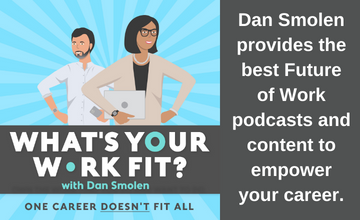Podcast: Play in new window | Download (Duration: 9:26 — 13.0MB)
Dan Smolen believes that Career and Technical Education or CTE is key for future work.
As students across the U.S. return to the classroom, more school systems are delivering STEAM instruction and career and technical education or CTE.
STEAM and CTE are key for future work. Provided together, they help students to gain access to well-paying jobs that don’t require a 4-year college degree.
This is indeed a positive development. But getting public school educators to engage students with the future of work has never been easy.
Even pre-pandemic, CTE and in-school career exploration plunged far down the list of academic priorities. In the 2000s, public school systems responded to No Child Left Behind directives by teaching to competency tests. As a result, the critical thinking and creativity needed for future work suffered, killing career dreams.
What is more, high schools in wealthiest communities emphasized advanced placement courses and four-year college tracks over CTE.
It’s an economic driver: public schools that graduate the most advance-placed students become the most-desired places to live.
However, our schools had done a terrible disservice by not teeing up and supporting amazing future work options for worthy students.
To enable millions more young people to prepare for career options that don’t require a 4-year college degree, we must respond boldly, to:
- Foster career dreaming beyond elementary school.
- Drive strong STEAM instruction that begins in Kindergarten.
- Establish “early mentorships” with companies in advanced fields.
- Build a big educational stakeholder table. It should include school administrators, community colleges, union training academies, workforce experts, elected officials, and members of advanced industries.
CTE is key for future work. It gets people accredited and into great new jobs, faster, than a four-year college degree.
EPISODE DATE: August 27, 2021
